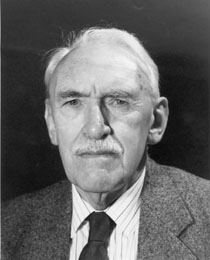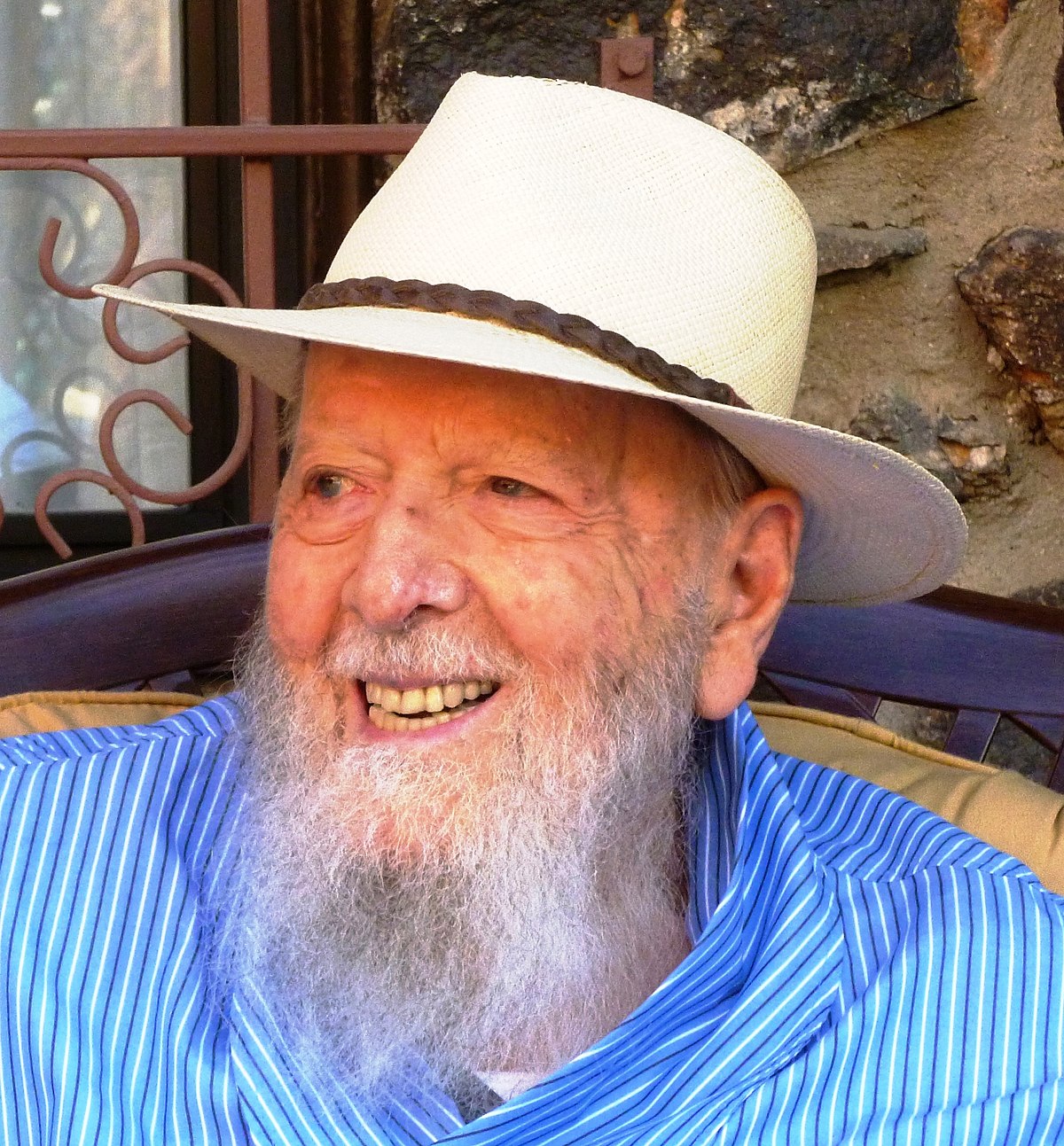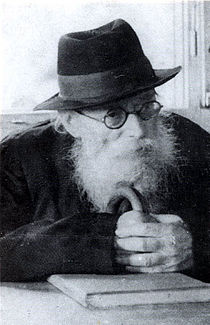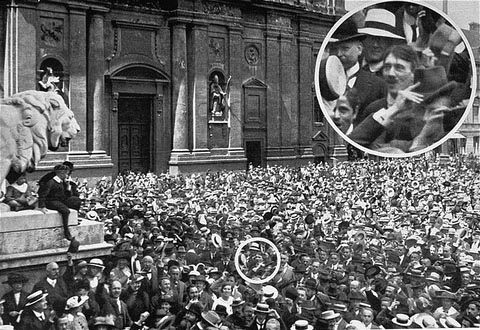
Among the tragic events that occurred in this mourning period of the Jewish calendar was the outbreak of World War I. Naively termed the “Great War,” it was the catalyst for World War II, the Holocaust, and all the other murderous events that would follow in the 20th century. It was brought about by catastrophic miscalculations of the great European powers, a combination of reckless politicians, stupid generals, and strong jingoist fervor. Yet when it first broke out, people all over Europe cheered – in London, Paris, Vienna, Berlin, Moscow, St. Petersburg. Here is a picture of a cheering crowd with Hitler himself right in the middle of it. The First World War was going to raise the art school reject out of his anonymity.
The war was a total war and therefore a total disaster. But in a perverse and not too surprising twist of events, the Jewish population of Europe suffered most. As individuals, the Jews fought in the armies of all sides, becoming super-patriots in their respective countries, determined to prove that they really “belonged.” This was especially true of German Jewry. Over 12,000 Jews died fighting for the “Vaterland.” Their patriotism and sacrifice would turn to ashes, literally, within twenty years.
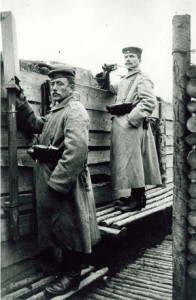
But in spite of their super-patriotism, the Jews in Germany were subject to accusations of disloyalty. In 1916, the German General Staff ordered a census of all Jewish soldiers in the army to determine how many actually served on the front line. The fabricated census was publicized with great fanfare, intimating that the Jews were shirking their duty. The actual results showed that 80% of all Jewish soldiers served on the front lines, far higher than the general population, but this was never released to the general public.
Anti-Semitism had been virulent in Germany even before World War I. Germany’s subsequent defeat only served to exacerbate it. The stage was already set for the “Jewish-led-stab-in-the-back” betrayal theory that brought Hitler to power.
For the Jews in Eastern Europe, the war also brought unmitigated tragedy. A quarter million died in battle, and over a million became refugees because the Czar accused them of being German collaborators, forced them to leave their homes, and settle in inland Russia. Because of the Czar’s behavior towards the Jews, many actually welcomed the conquering Germans and Austrians as liberators and benefactors. The Jewish infrastructure in Eastern Europe, socially, economically, culturally and religiously, was almost completely destroyed by the war.
The war also served to radicalize much of Eastern European Jewry’s youth into secularists and Marxists. The yeshivot were scattered, and many of the Chassidic courts and dynasties were decimated. The Bolshevik revolution brought on by the war attempted to destroy the practice of Judaism. The anti-Semitism of the Polish and Lithuanian nationalists became overt and violent. In perfect hindsight, it seems clear that even without the Holocaust, Eastern European Jewish life was on the wane.
As we see in current times, divides within the Jewish world are not easily bridged. But what we must appreciate is that the ideologies that drive them were annealed in the heat of the First World War. The Jewish people are still paying the bill for it.
To learn more about World War I, please see our film, “Faith & Fate, Part II: The Implosion of the World Order“


